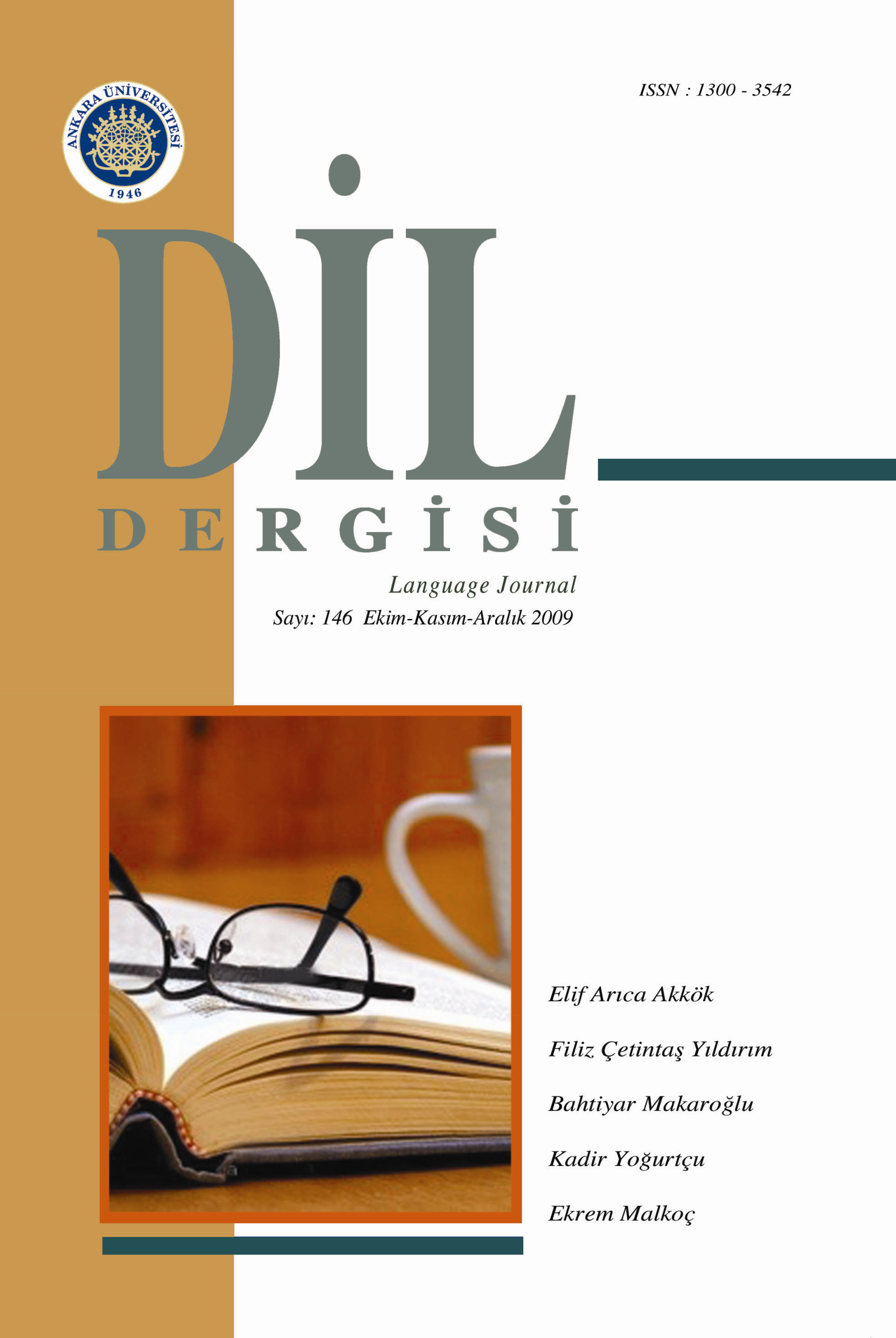Türkçede Zaman-Tarz-Neden-Sonuç İlişkilerinin Ulaç Ekleriyle Belirginleştirilmesi: Sıklık Yüzdeleri Ve Uzman Uyumlarına Dayalı Anket Sonuçları
The Designation Of Time-Manner-Cause-Result Coherence Relations By Converbs In Turkish: The Results Of A Query Based On Frequency And Expert Congeniality
Author(s): Filiz Çetintaş-YıldırımSubject(s): Language studies, Education, Foreign languages learning
Published by: Ankara Üniversitesi TÖMER
Keywords: Coherence; converb; complex sentence; coherence relations, subject matter and presentational coherence relations; circumstance; manner; cause and result relations;
Summary/Abstract: Turkish converbs are some of the most important linguistic structures, which designate different coherence relations while clauses are conjoined and which develop text coherence. Çetintaş Yıldırım (2010) attempts to classify converbs according to the coherence relations that they designate in the frame of Rhetorical Structure Theory (Mann and Thompson, 1987). The results of Çetintaş Yıldırım’s query, which demonstarte frequncy and Chi-Square expert congeniality, imposes interesting observations on some of the converbs designating circumstance relations. Contrary to her assumptions, the results have shown that not presentational coherence relations but subject matter relations reflect deviations.In this paper, the subject matters are that some of the converbs which designate circumstance relations may also designate manner, cause and result relations and that it is a necessity to form designation scales among these converbs.
Journal: Dil Dergisi
- Issue Year: 2009
- Issue No: 146
- Page Range: 25-39
- Page Count: 15
- Language: Turkish

